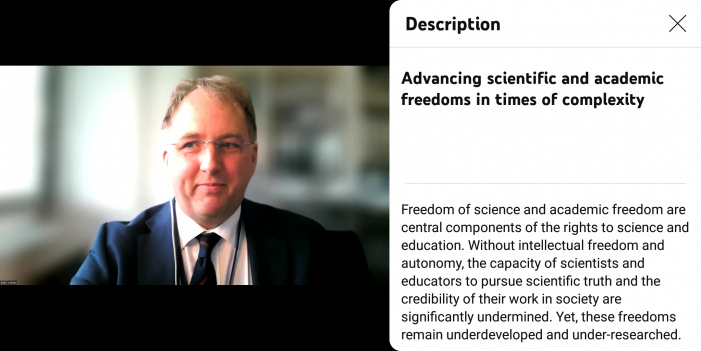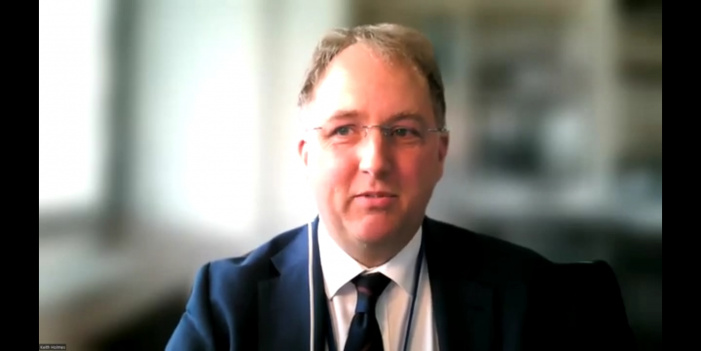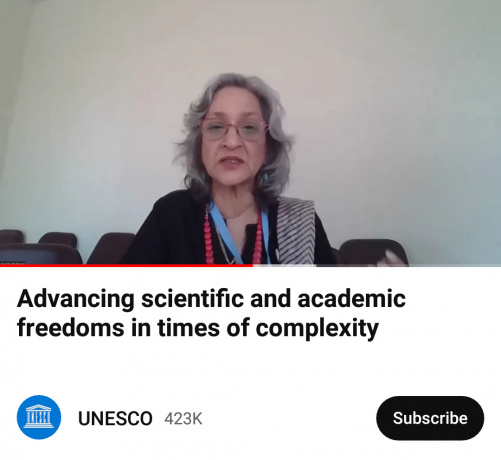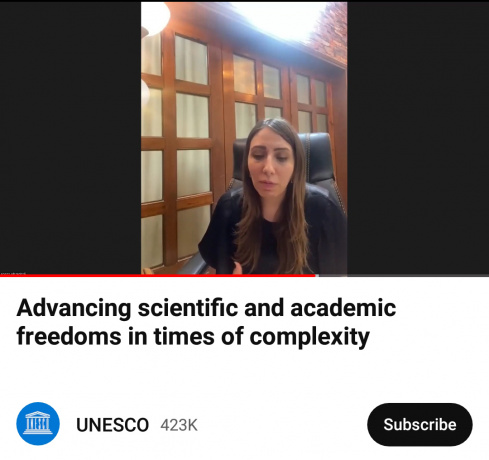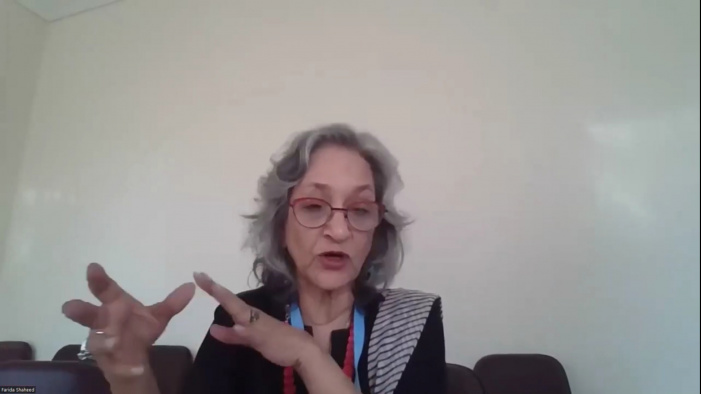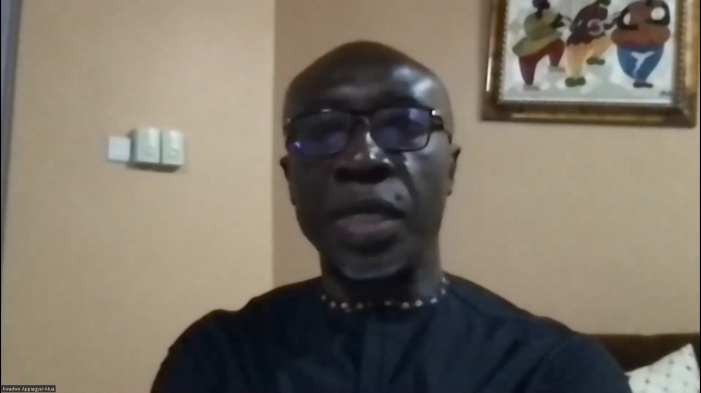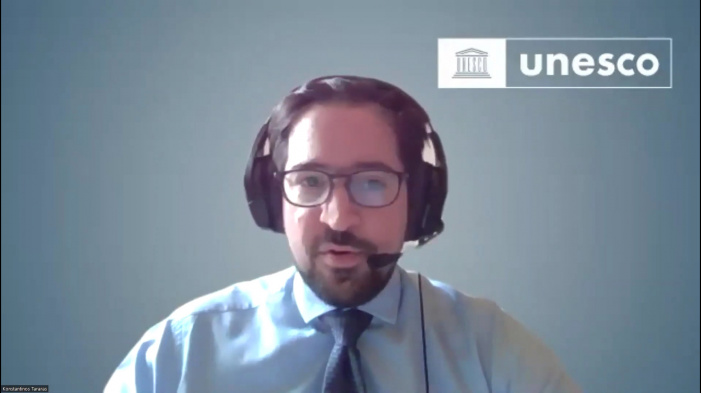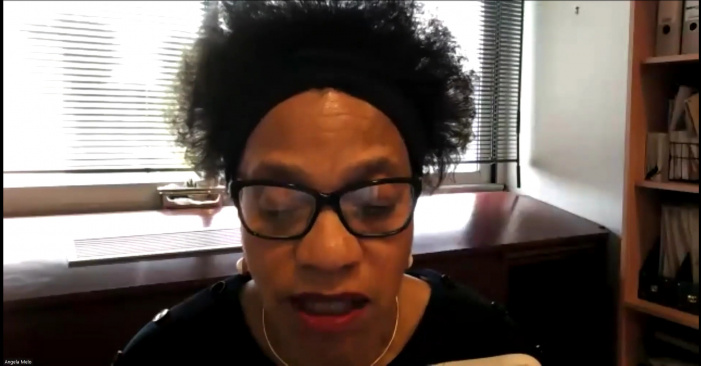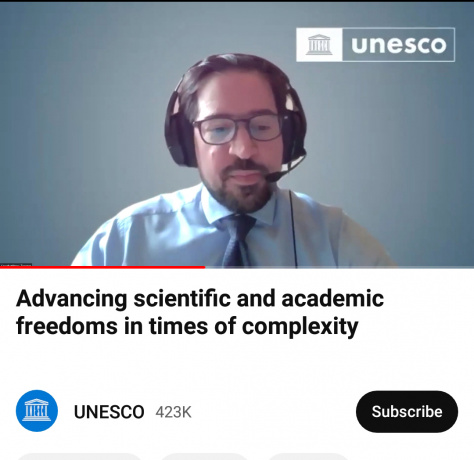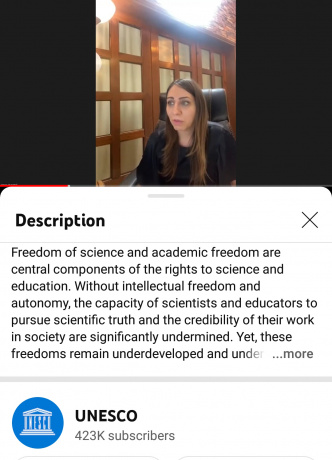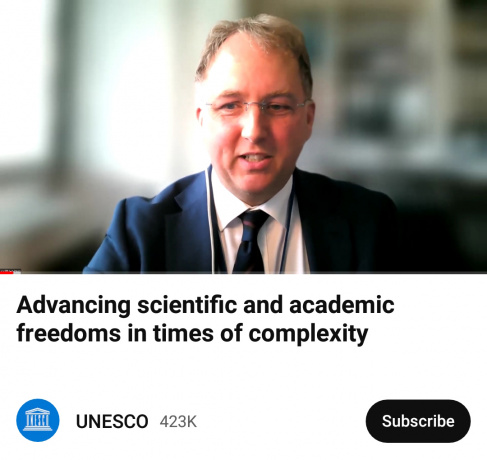In the sixth specialized webinar of the UNESCO chair, it was raised:
Academic freedom and freedom of science
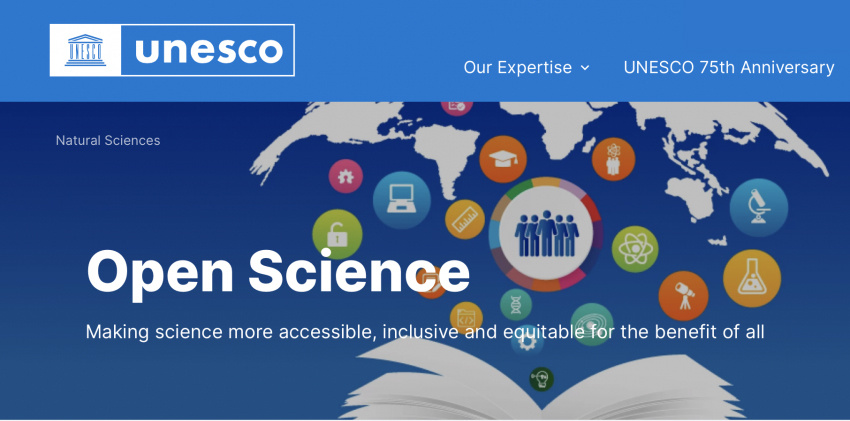
Freedom of science and academic freedom are central components of the rights to science and education. Without intellectual freedom and autonomy, the capacity of scientists and educators to pursue scientific truth and the credibility of their work in society are significantly undermined. Yet, these freedoms remain underdeveloped and under-researched.
In a context where science and technology develop with a frenetic pace and solutions to the world’s problems are increasingly science-driven, it is necessary to bring these dimensions of freedom of opinion and expression to the fore. What should be their meaning? Where should we set the boundaries? What could be effective ways to promote and defend them? These are core questions that should be re-examined in the light of the persistent demands for the transformation of science ecosystems, as well as of the academia. The need to pay attention to these issues was underscored by UNESCO Member States at the 216th session of the Organization’s Executive Board as part of the call for a stronger implementation of the UNESCO.
The 75th anniversary of the Universal Declaration of Human Rights (UDHR), celebrated throughout 2023, is an excellent opportunity to put the spotlight on these issues. UNESCO Chairs Seminar 6 aims to create greater awareness of the importance of scientific and academic freedoms in the face of complex challenges for sustainable human development. UNESCO Chairs - and the academic community more generally – as actors directly concerned by these freedoms must play a decisive role in promoting conceptual clarity, advocacy and effective action.



